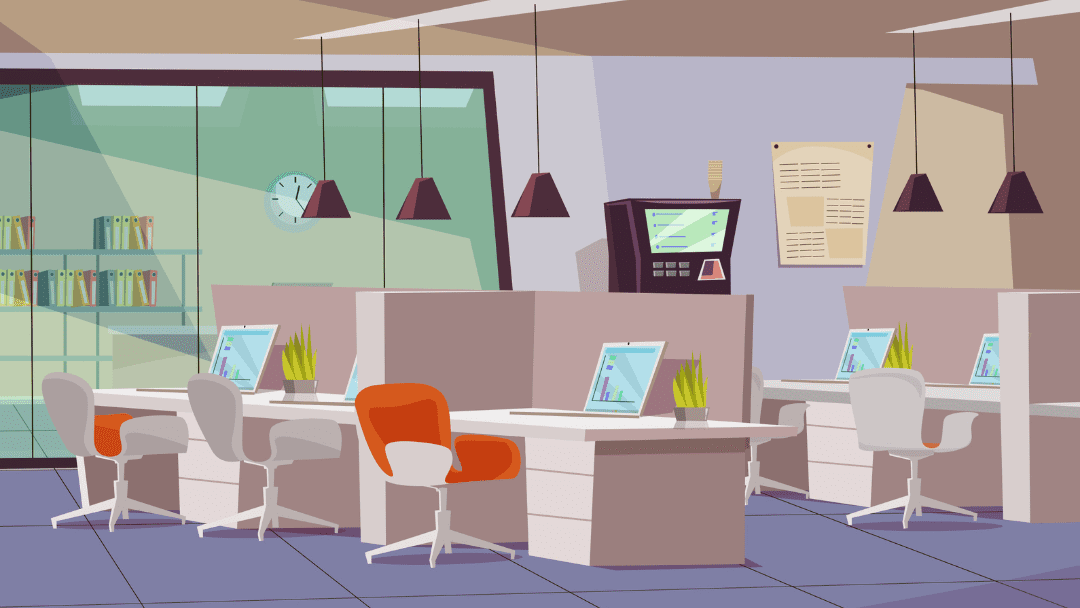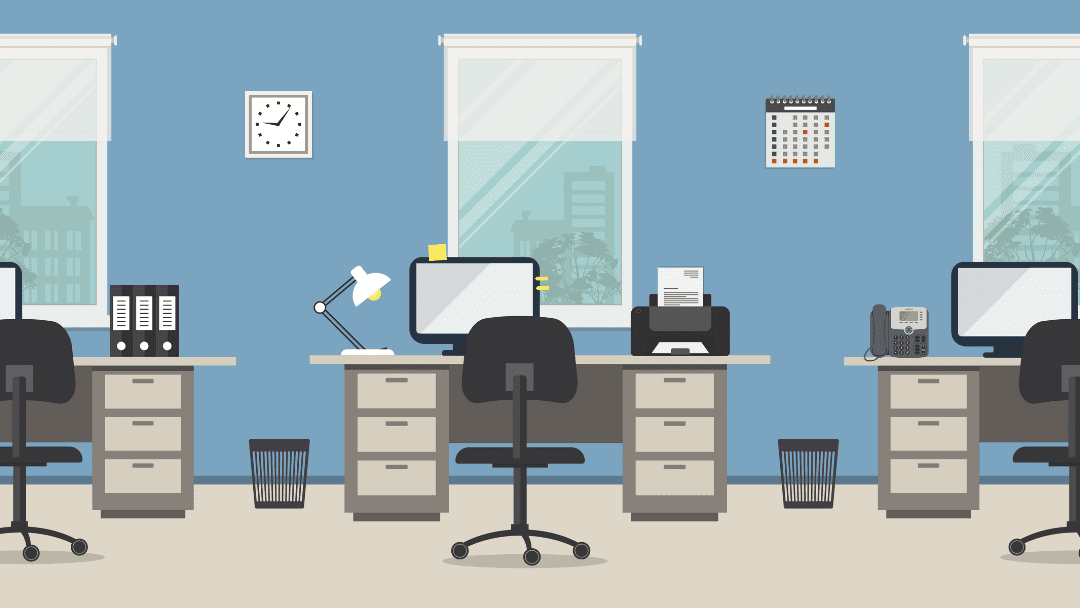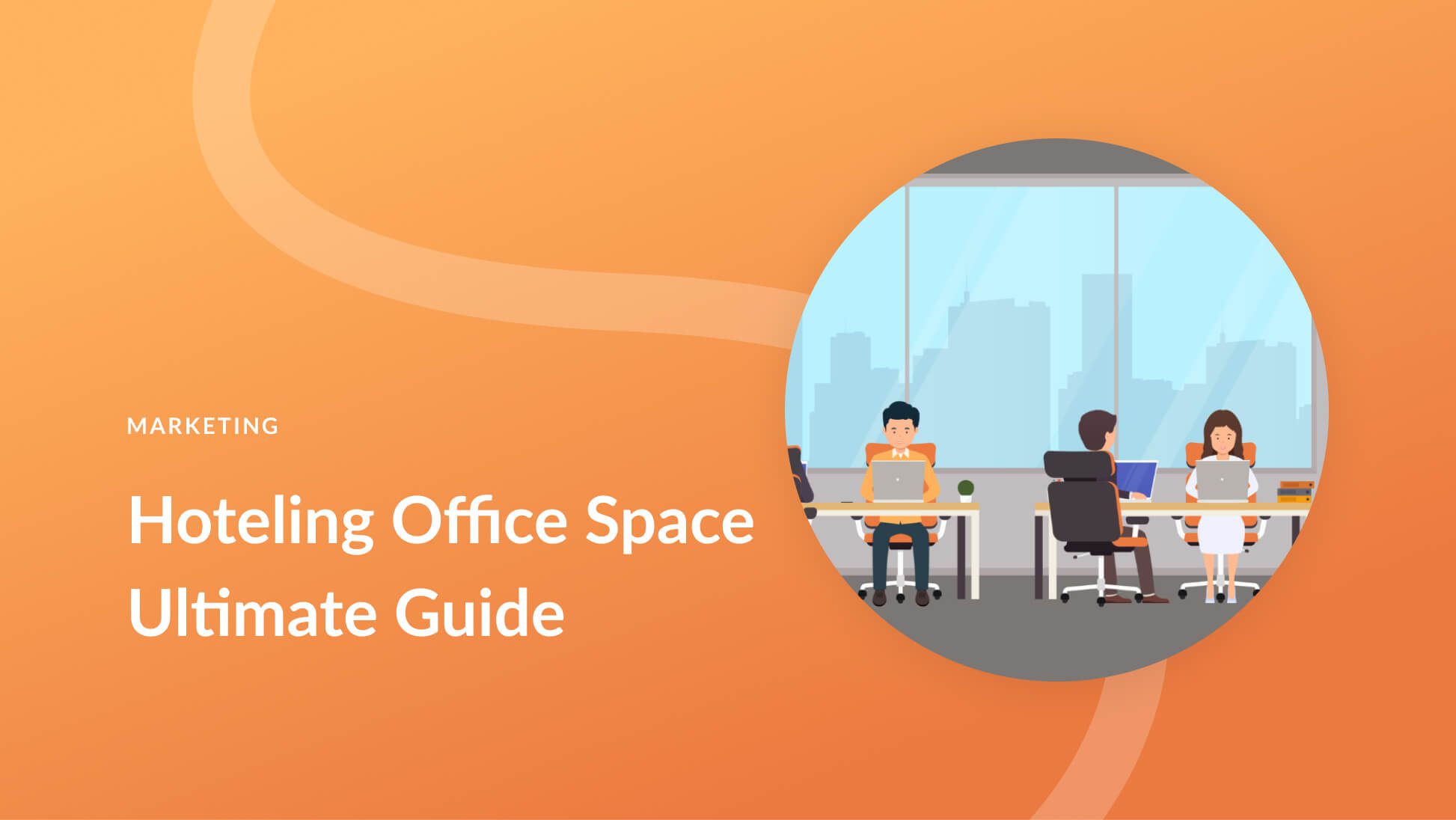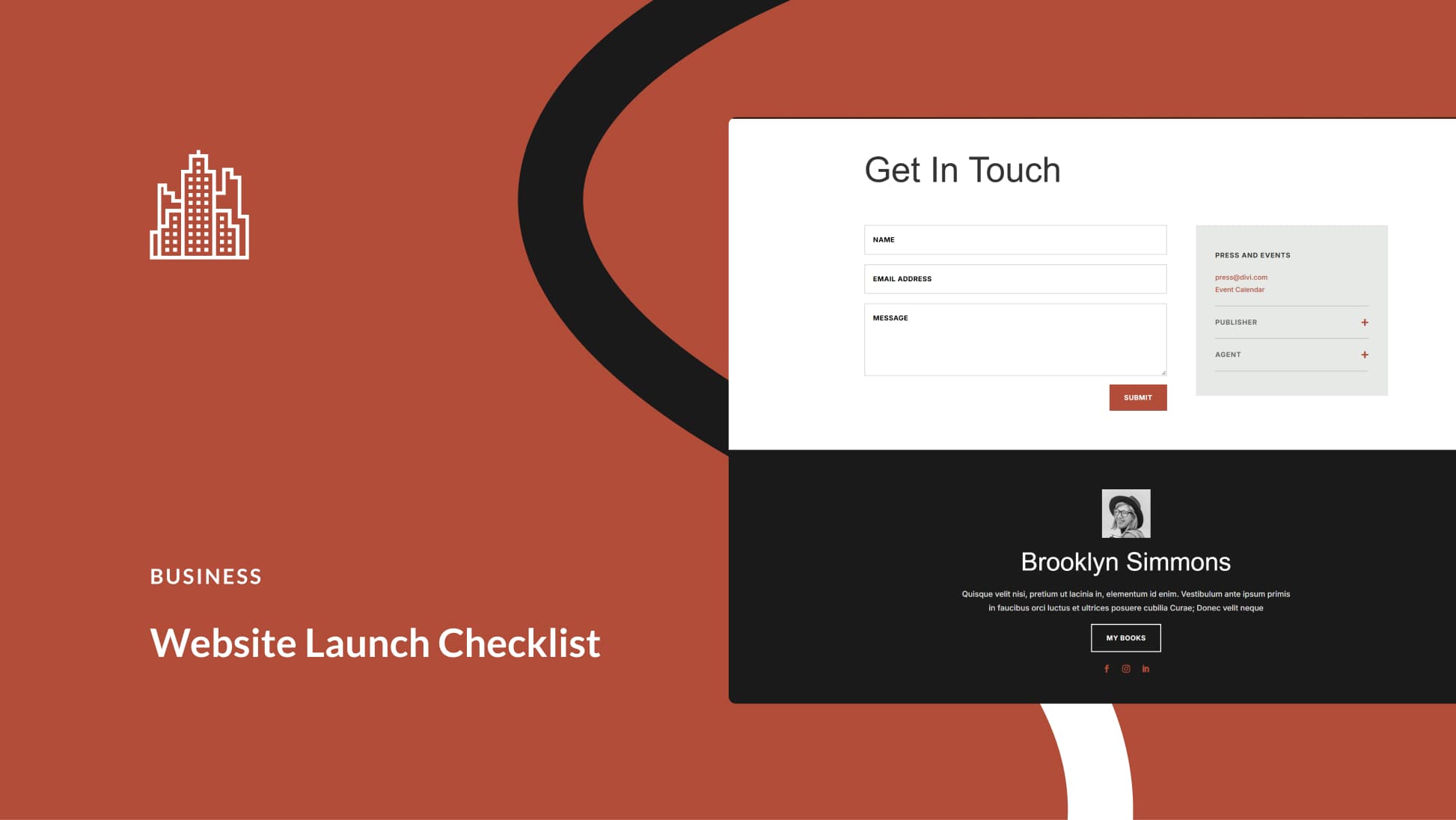While many of us have worked from home for years or are already familiar with hybrid office arrangements (come, go, stay, leave, sit, stand…), the notion of untraditional workspaces really took off during the pandemic. And even now, with a lot of companies returning to normal – or a new normal – there’s a lesson learned that carries over: alternative workspaces have benefits for employers and employees. There are drawbacks too, of course. Let’s go over all of it, with a focus on hoteling office space.
- 1 What is a Hybrid Workplace?
-
2
How to Create Hoteling Office Space
- 2.1 1. Make Sure This is the Right Decision for Your Office
- 2.2 2. Anticipate Skepticism When Explaining the Vision to Employees
- 2.3 3. Assess the Space You’re Working With
- 2.4 4. Create Zones for Different Types of Work
- 2.5 5. Put Effort Into Setting Up Attractive Desks
- 2.6 6. Choose Software That Standardizes the Process
- 2.7 7. Think About the Specific Features You Need
- 2.8 8. Designate One Person Who’s in Charge
- 2.9 9. Learn From the Process
- 3 Wrapping Up
What is a Hybrid Workplace?

Image via GoodStudio / shutterstock.com
A hybrid office is one where there is a mix of in-office employees and remote employees. Those in-office versus remote employees may change, too, meaning in-office workers may opt to work from home or the road some days and vice versa. Plus, even where in-office employees work can change day to day depending on desk availability and what the worker needs (like a private office to hold meetings or a board room to work on a team project). To categorize and create processes for these changing needs, two styles of hybrid workplaces have emerged: hot desking and desk hoteling. Both are alternatives to having an assigned desk that you sit at every day.
Hybrid Workplace Pros
- Using real estate more efficiently makes hybrid workplaces cost-effective.
- Desks aren’t personalized, so they stay clutter-free and minimalistic, which makes for a nice presentation.
- Work-from-home employees can choose to come in some days and use a dedicated workspace.
Hybrid Workplace Cons
- Employees can’t personalize their space or always have their desks arranged exactly the way they like.
- So many people sharing the same desk can lead to an exchange of germs.
- Workers won’t always be able to sit near the colleagues they have to talk to for work purposes.
Hot Desking

Source: ClassicVector via Shutterstock
In a hot desking workplace, the employee arrives at work and sits wherever a desk is available. If several workstations are available, the employee can choose which one they want to use, so long as it’s not reserved. Usually, the worker uses software upon arriving at the office to see which desks are free and claim one. Then, they can check out when they’re done so other workers see that the workspace is available again.
Hot desking works well in two types of offices. If you have a small office with a limited number of workers, having everyone choose a desk as they enter won’t be too jarring. It’s also a reasonable system if a majority of your employees aren’t in the office most days and only come in on the rare days when they’re not in the field. In that case, they probably haven’t gotten accustomed to any one desk and only need the bare minimum to handle admin for the day.
Pros and Cons of Hot Desking
Pros
- Employees end up sitting near people they don’t usually get to connect with. This can strengthen professional relationships and encourage collaboration.
- Management doesn’t have to worry about who will sit where if a lot of employees pop in unexpectedly (assuming there are enough desks for everyone).
- Workers appreciate the autonomy of choosing where they sit every day without having to pre-plan.
Cons
- Some workers may feel anxious when they don’t know where they’ll be sitting each day or if a desk will even be available.
- It affects productivity when there aren’t any desks available and the employee has to decide whether to wait or go home.
- Workers may feel that if they were important to the company, they’d at least have a space to work every day.
Desk Hoteling

Source: Iryna Alex via Shutterstock
Desk hoteling takes a more methodical approach to the hybrid office. Employees reserve their desks or workstations ahead of time. The system is similar to booking a hotel room online. However, it’s even more advanced. You can see things like where the desk is, who has reservations surrounding it and which amenities it includes.

Source: Envoy
With the reservation system, workers can see which desks are available for the days and times they plan to be in the office. If they’re not happy with the selection, they can work from home on those days and go in on other days when their preferred desk is free. Like with hot desking, when the employee arrives at work, they’ll check in to their workspace, and they’ll check out when they leave.
Desk hoteling is ideal for offices that struggle with space utilization. When there aren’t enough desks for all employees, you need a way to manage the space without interrupting the daily workflow. It’s also useful for offices that have some remote employees on a changing basis, as management will always know where workers are and how to reach them.
Pros and Cons of Desk Hoteling
Pros
- Employees can design their workweek(s) ahead of time, which improves productivity and reduces burnout.
- Make reservations for full day, half-day, or even hourly blocks.
- This system works at any scale, whether you have a tiny office with 10 desks or multiple floors in your office building – or even multiple buildings.
Cons
- Setting up desk hoteling may be too much trouble for small offices that don’t have space or seating issues to solve.
- Everyone will train to use the booking software, and there may be a severe learning curve for some employees.
- Office arrangements will get confusing if the software has a glitch and is down for a period of time.
How Hot Desking, Desk Hoteling, and Traditional Workplaces Relate
In the purest sense, neither hot desking nor desk hoteling allows for a worker to permanently claim a chair, desk, or workspace as theirs. However, both types of workplaces rely on reservation software to keep the office running in a sensical way even as people hunt for an open desk. That software will sometimes have features that allow employers or employees to allocate a certain workspace to specific workers or reserve the same workspace on a repeated or long-term basis. In those cases, some elements of hot desking and desk hoteling feel more traditional than others.
Also, note that neither of these hybrid setups is the same as meeting room booking. Even the most traditional of offices will usually have a system for reserving meeting rooms. If you opt to use booking software in a hybrid office, the features may include meeting room booking (and reservations for other areas of the office).
How to Create Hoteling Office Space
Hot desking is a lot more limited than desk hoteling, and some hoteling office space setups can incorporate a bit of hot desking when it makes sense. For our purposes, we’re going to focus on how to arrange a desk hoteling setup, as that’s the option that most employers are going to choose. With that in mind, here are 9 tips for creating a hoteling office space for your business:
1. Make Sure This is the Right Decision for Your Office
Don’t jump on the hybrid office bandwagon just because it’s trendy. Consider the following:
- Are most of your employees in the office every day? And are they happy with that? If very few employees are going to be working remotely, it’ll be more trouble than it’s worth to set up hoteling office space.
- How many of your employees handle sensitive information? Will they always need a more private desk setup, and if so, can you assign them a permanent seat or always ensure they can reserve one?
- Do you have enough space to designate quiet areas? When you mix up who sits next to who, noise can become an issue, especially if some workers have to spend a lot of time on the phone.
- Will you be able to provide office gear and equipment? Without having assigned workstations, you need a solution so that employees can have what they need without requiring them to bring it into the office every day.
For it to be worthwhile, your office has to be a good match for desk hoteling.
2. Anticipate Skepticism When Explaining the Vision to Employees
Employees who have never been part of – or even heard of – desk hoteling are going to be skeptical of your plans. They may feel nervous about giving up a beloved desk, especially if they’ve worked there for years. Some may feel worried about cleanliness, privacy, or how the social aspect of work will be affected. By simply knowing that doubt is coming, you can have answers and solutions at the ready.
A smart approach is to explain your vision to your employees instead of simply telling them that things are changing and they have to accept it. When you frame the changes as a way to achieve company goals and improve the experience of your employees, they’re more likely to get on board. Valuing workers and getting them involved sparks loyalty.
3. Assess the Space You’re Working With
So much of this comes down to real estate. Consider the following:
- Do you have/want enough space for everyone if every worker came in on the same day?
- Are you trying to encourage a percentage of employees to work from home to limit how much real estate you need?
- Do you want social distancing between desks?
- Should some desks be extra-close for collaboration purposes?
In general, ask yourself what you have enough space for and what you want to do with that space.
4. Create Zones for Different Types of Work
Creating zones for different types of work is key to making hoteling office space beneficial for everyone. Some areas can be designated for louder work, like for teams that have to talk a lot when collaborating or salespeople who spend most of the day on the phone. Then there can be quiet zones for employees who need silence to concentrate. You can also limit who has access to certain spaces – for example, maybe interns are never allowed to sit near high-level creative or marketing teams for the sake of keeping strategies private.
5. Put Effort Into Setting Up Attractive Desks
Now that employees aren’t going to have their favorite items surrounding them, you have to make all that free desk space appealing somehow. Adding artwork, plants, and interactive elements – like mini zen gardens – are welcoming without being overwhelming or too distracting. Also, make sure everyone knows that they have to completely clear out when they leave for the day – no leaving behind personal items or work that’s unfinished.
Most importantly, keep desks clean. If you can’t hire a cleaning crew to disinfect desks between users, then provide employees with cleaning supplies and create a checklist to follow when they’re done with their shift.
6. Choose Software That Standardizes the Process

Source: OfficeSpace
To streamline the process of hoteling your office space, workplace management software can help keep you organized. When shopping around for the best hoteling office space software, make sure it covers the basics in an uncomplicated way:
- The worker checks the availability for a certain day and time slot, then reserves a desk.
- Booking details are sent to the worker via email, confirming the reservation.
- The system immediately updates to reflect the new information, ensuring others won’t accidentally double-book.
- A reminder is sent to the worker via email before their visit.
- When the worker arrives at the office at their scheduled time, they check in and find their reserved desk.
- At the end of their shift, the worker checks out.
On top of those fundamentals, the software you use can handle other needs. You may also be able to use a general booking plugin to manage your office space. This brings us to our next point…
7. Think About the Specific Features You Need
Every office has its own set of unique needs. Consider yours, and then find software to match. For example:
- Booking for additional workstations, like standing desks, lounge areas, or large tables for teams.
- Booking for non-workstations, like parking, service elevators, and equipment.
- Calendar integrations with services like Google or Outlook.
- Grace periods and auto-cancellations for missed bookings.
- Integration for your HVAC system to adjust the temperature based on if the space is being used.
- Rules to manage who can access certain workspaces.
- Sensors on desks that update the software with in-use/available statuses in real time.
- Visitor check-ins to have an eye on anybody who’s in the office.
Even if the software you choose doesn’t have the functionality you need out of the box, ask if you can have it customized for you.
8. Designate One Person Who’s in Charge
It’s a good idea to designate one person to be in charge – you may even want to hire someone to fill this new position (and use these job board plugins to manage all your applicants). Your employees are bound to have questions, and you’ll also want an eye on the comings and goings in your office. The person in this position should understand the reasons behind why you’ve chosen desk hoteling, and they should also have expert-level knowledge of the software. Plus, they should have the layout of your office memorized so they can direct people to their desks or find an employee when they need to.
9. Learn From the Process
It’s going to take some trial and error before your hotel office space chugs along smoothly. Desk hoteling is going to have a big effect on your employees, so it’s important to be open to their opinions. By listening to how the changes are affecting them both positively and negatively, you’ll figure out where you need to tweak the system.
Also, dig into the data that your software collects. You’ll be able to see usage trends to determine how well desk hoteling is working and how it’s being used. You’ll also be able to forecast future needs and prepare for times when the office is more empty or busier than usual.
Wrapping Up
Desk hoteling is an interesting way to run an office. Depending on your corporate culture, the needs of your employees, and how much space you have to work with, it may be the perfect choice for your company. Or it may cause more headaches than it cures. If you think desk hoteling may be right for you, consider rolling it out slowly, sectioning off part of your office for the experiment, and asking employees for feedback along the way.
To dive further into how desk hoteling, check out our post on how desk hoteling can improve your office.
If you are looking for help with software, check out these best hoteling reservation and booking systems
Have you experienced desk hoteling in your company? Let us know your thoughts in the comments!
Featured Image via Ramcreative / shutterstock.com









The idea of a hybrid workplace is quite interesting and such a system is available in many offices, it is a very rational solution. In order to avoid certain misunderstandings in the distribution of workplaces, it is worth making all processes transparent and accessible to all employees. Establish a clear review and approval process where every team member knows who does what by fluix.io/solutions-collaboration
Hi Lindsay, thanks for your interesting article.
I have never experienced desk hotelling in my company, on the contrary, I have my own office at home where I work from and I love the privacy that this gives me and the clients that visit me.
I have no doubt that hybrid workplaces are the future, although I envision such jobs as temporary rather than permanent.
Thank you